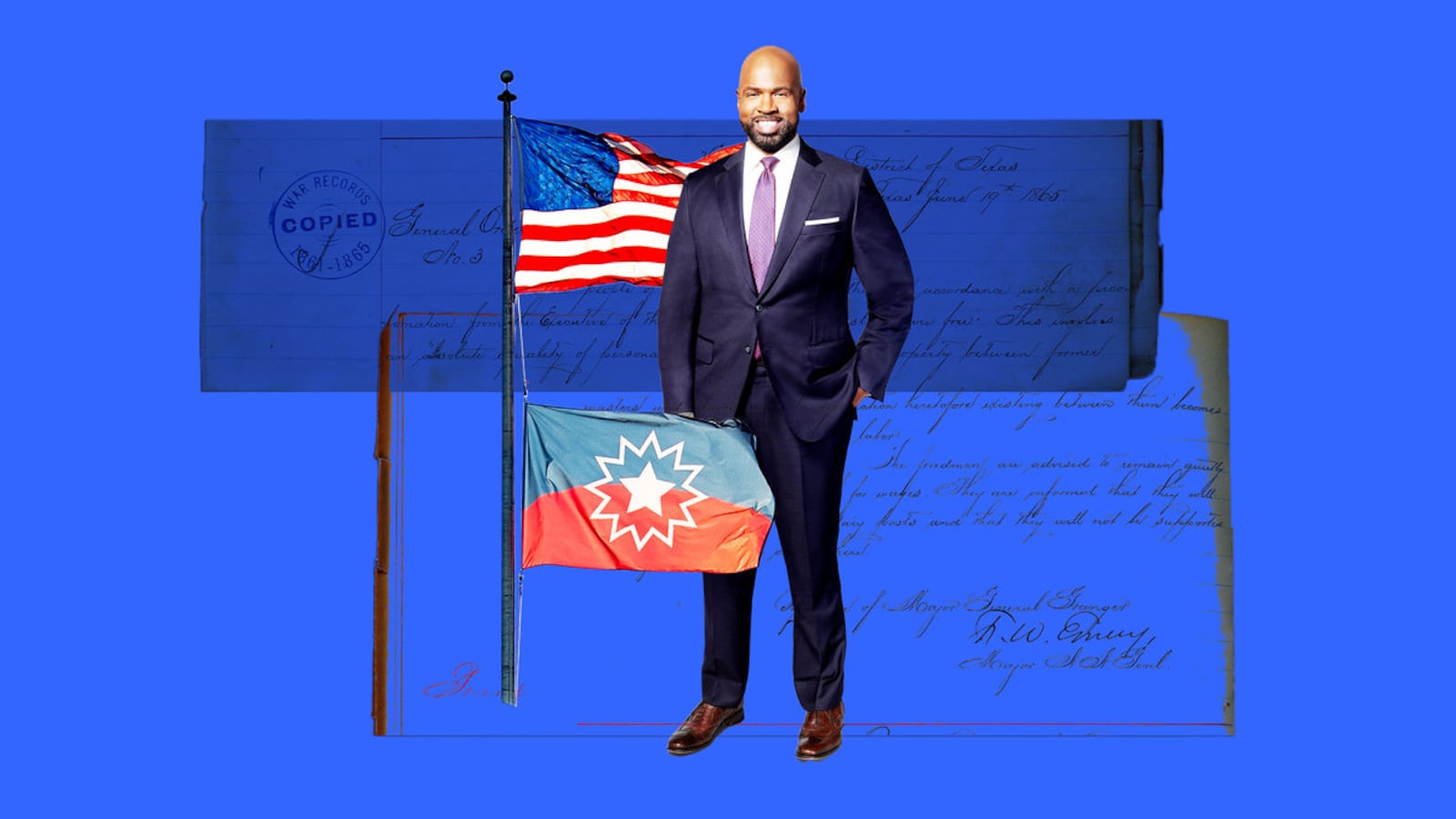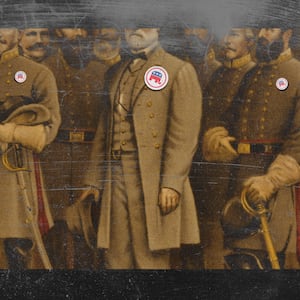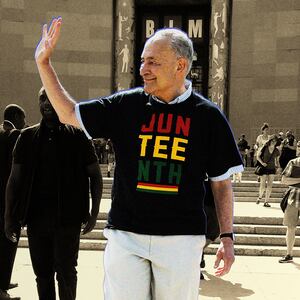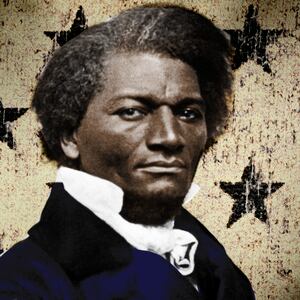CNN anchor Victor Blackwell has opened up about his own personal connection to Juneteenth after he had a professional genealogist research and report his family ancestry last year.
Blackwell told The Daily Beast he thought he knew what to expect, but the report took him in a whole different direction and provided a completely different outlook into his ancestors’ lives.
“I was a bit nervous about handing all [of my family information] over because I didn’t know until the reveal,” Blackwell told The Daily Beast. “There was a bit of—I don’t want to call it anxiety but—some butterflies going up to the big reveal. Once I learned the story, it was humbling; it gave me some perspective. It gave my family [a] place in the story of the nation, and it was not what I expected. When you are a Black man with roots in the South, you think you know what the story is. And I didn’t.”
In partnership with the International African American Museum and renowned genealogist Dr. Shelley Murphy, Blackwell learned that he descended from a woman named Sarah, who was born free in the early 18th century but had to appeal for her freedom when she was illegally sold into slavery. Then, Sarah’s daughter Rachel had to go through that same process herself with her own children when she was sold from her family before they were able to regain their freedom.
“I was just dumbstruck. I get kind of misty. I felt really overwhelmed with gratitude that that there were women who would take that risk,” Blackwell confided to The Daily Beast.
He and other members of his family have that paperwork framed in their homes as a reminder of who they come from and the legacy they’ve carried forward.
“That one document is not just a reminder of what Sarah invested or what Sarah risked; it is a reminder of all the women between Sarah and me and what they have put on the line and what they have risked and what they have invested.
“They never knew that slavery would end, but to do it for their children and their children's children and for generations to come, it really is kind of overwhelming,” Blackwell said, adding that taking care of the next generation has been a pattern his family has continued, even when it came to him pursuing his journalistic dreams in a single-parent household.
“It is a reminder to me not to squander… opportunity and education and investment and not take for granted the position that I have,” he said. “[My family] cherish[es] that—not just as an heirloom, but as a living reminder of the people who invested so much into us.”
Despite having ancestors who were freed prior to the Emancipation Proclamation, Juneteenth still holds a deep meaning for Blackwell, which he considers to be an ever-evolving holiday.
“Juneteenth is a holiday for everyone to celebrate freedom, and as I learned my own story, it kind of encouraged me to learn more, and there are more stories coming, but also to encourage people to also find their own stories of freedom,” he said. “There are fights for freedom today. The fight for freedom did not end in 1865.”
He added that freedom extends beyond the concept of bondage, but also branches into the freedom of education, sexuality and personal identity, and political rights and opportunities.
For years, “Godmother of Juneteenth” activist Opal Lee pushed for Juneteenth to be made a national holiday. The national recognition finally happened in 2021 under President Joe Biden, following 2020’s tumultuous summer of racial reckoning after the highly publicized brutal deaths of Ahmaud Arbery, Breonna Taylor, and George Floyd. The day, which is a culmination of the words “June” and “nineteenth,” commemorates the end of African American enslavement.
Echoing the philosophy of Lee, Blackwell stated that “Juneteenth celebrates the freedom of the people; the Fourth of July— Independence Day—celebrates the freedom of the land.”
He added that the concept of celebrating Juneteenth is still new, but he will take the time to honor his ancestors—those born free and those who were enslaved.
“There will be a moment in which I take some time out to thank [my great-grandmothers] and those generations who worked for my freedom and for those on another bloodline that persevered and survived because one contribution is no greater than the other,” he vowed. “I am grateful that [my ancestors] sued for their freedom, and in turn, my freedom, but I am just as grateful to those ancestors who survived freedom, who survived slavery, who persevered and did not live to 1865, did not live to emancipation. So, there will be a moment in which I express my gratitude… to all of those who came before.”
The host of First of All with Victor Blackwell, which airs Saturdays at 8am E.T. on CNN, said he hopes that Juneteenth becomes a holiday “that the entire country can celebrate, not just in Black households.”
“Juneteenth is a holiday for everyone to celebrate freedom, and as I learned my own story, it kind of encouraged me to learn more,” he said. “There are more stories coming, but also to encourage people to also find their own stories of freedom.”
Since Juneteenth became a national holiday, Blackwell, a Baltimore-native with Virginia roots, has held special programming to honor the day. In this year’s upcoming Juneteenth celebration, which airs Wednesday at 10pm, Blackwell speaks with Lee, powerhouse vocalist Patti LaBelle, EGOT-winner John Legend, and legendary songwriter and singer Smokey Robinson about their experiences being Black in America and working to overcome social injustices.
In that respect, Blackwell said that every person’s method to honor the past is unique to their own story and lineage.
“I don’t know that freedom divides, and there will be naysayers for and about any and everything,” Blackwell said. “But at the very least, can we not unite around a celebration of freedom as both the freedom of the people and the freedom of the land?”









